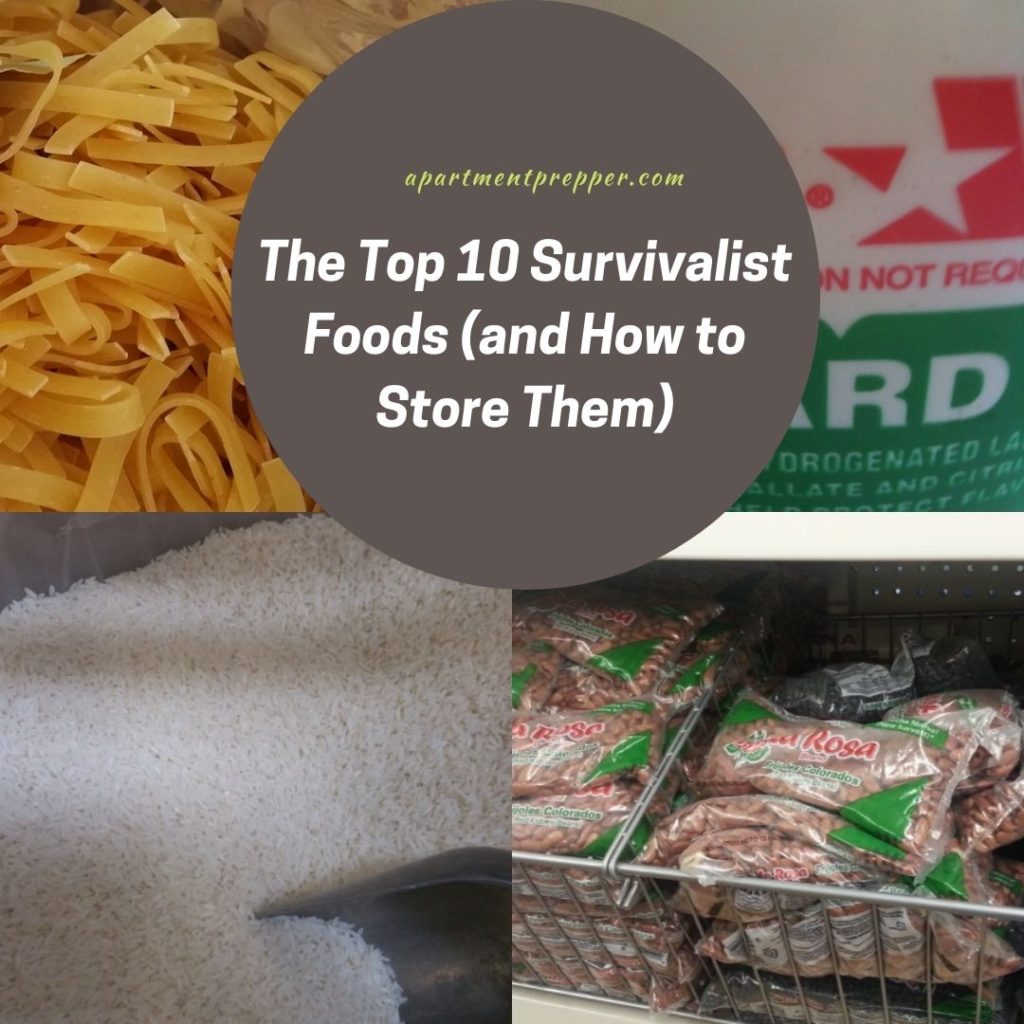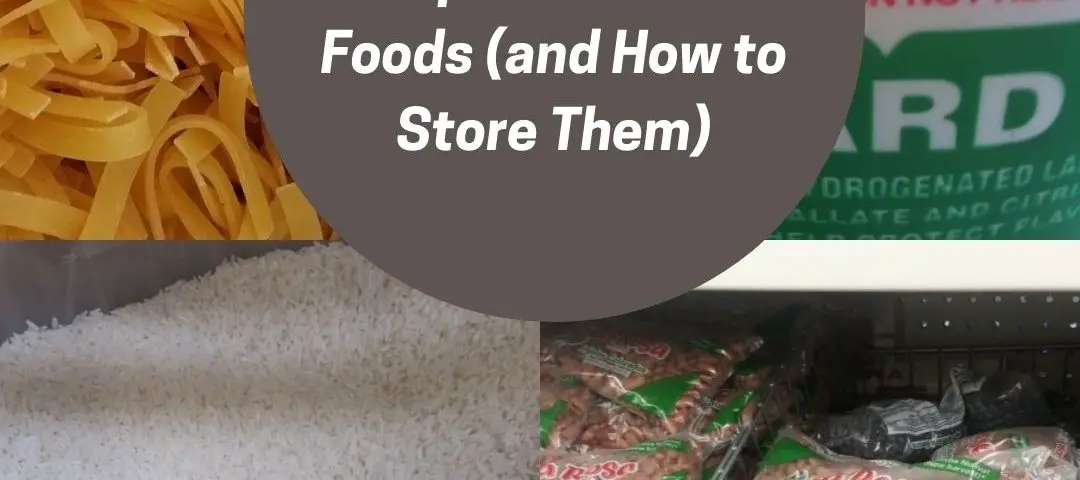Written by Martin Banks
Whether you’re prepping for the apocalypse or the next pandemic, your main priorities are water, shelter and food. Of course, if you live somewhere with running water — or have the wherewithal to stock your home with jugs — the first two elements are taken care of.
However, it’s up to you to gather food and store it properly. More importantly, you must make sure that whatever foods you collect will keep you strong and healthy in an emergency situation.
That said, you may want to stock up on some of the following top survival foods as they support a balanced diet and will last months with little effort on your part.
1. Beans
Nutritionally dense foods like beans are key to boosting your calorie intake and energy stores. In a survival situation, you’ll need those extra calories to keep you moving. Luckily, beans come in all different shapes and sizes — not to mention textures and flavors.
Plus, they’re super easy to store because canned and dried varieties can simply stay in their packaging. Opt for a variety of legumes like garbanzos and kidney beans to up your protein intake, too.
2. Rice
Rice is another great survivalist staple because it’s a good source of fuel for your body. Applying brown rice to your skin can even reduce redness and irritation, which could come in handy in an emergency.
Keep uncooked brown rice in a cool dry area for three to six months. Jasmine, basmati and arborio rice will keep at room temperature indefinitely. However, if bugs or other contaminants find their way into your supply, you’ll have to toss it.
3. Pasta
If college students can survive on ramen for four years, so can you. Pack some pasta into your bunker to add folic acid and healthy carbohydrates to your diet.
This food is cheap and easy to prepare as you’ll only need water. Bonus points if you find some sauce to go with it. Store uncooked pasta with your rice for up to two years.
4. Nuts
Whole, raw nuts are an important source of protein, fiber, vitamins and minerals, thereby earning themselves a place in your bunker. Contrary to popular belief, the best way to prolong nuts’ shelf life is to store nuts in the fridge or freezer rather than the pantry. Why?
Nuts contain high concentrations of unsaturated fat, which can go rancid in the presence of light, heat and oxygen. However, if the power goes out, they’ll still last a few months in airtight containers.
5. Fruits
Dried fruit like raisins, craisins and plantain chips all make wonderfully nutritious snacks. Plus, they’ll last a few months in your storage space so you won’t have to replace them nearly as often as you would fresh fruit. Dehydrated fruits will last even longer. Store these items for up to a year at 60ºF and 6 months at 80ºF.
6. Seafood
If the world faces another pandemic, you’re going to want seafood in your bunker. That’s because this food contains essential nutrients like protein, omega-3 fatty acids and vitamins that can boost your immune system and your overall strength.
Store raw seafood in the freezer for three to eight months or purchase commercially canned fish to store in the pantry for up to five years. If it’s about to expire, you still have options.
7. Meat
Dried meat has been a survivalist staple for hundreds, if not thousands, of years. While primitive tribes used smoking and sun drying methods, you can skip the preservation process by buying beef jerky from the local grocer.
You might also consider freeze-dried meat, which can last more than a decade if the bags remain sealed. The best part is you can leave both kinds of meat at room temperature in a cool, dark place and neither requires preparation before eating.
8. Oils
Oil isn’t necessarily an essential survivalist food. However, it can be nice to have if you want to season your food and add more healthy fats to your diet. Many survivalists also depend on olive oil for emergency lighting and for fueling fires.
However, both opened and unopened oil will only last up to two years, and nuttier oils will spoil within a few months. Prolong their shelf life by storing them in an opaque, tightly sealed container.
9. Honey
Unless you’re willing to stick your hand in a beehive, honey will likely be hard to come by after an apocalyptic event. So, if you’re worried about zombies or the end of the world, you might want to stock up on this all-natural ingredient.
Aside from adding a dash of sweetness to your food, honey can also heal burns and wounds. Store in an airtight container for optimum freshness and warm the jar in hot water if it begins to crystallize.
10. Pre-Made Meals
If you don’t want to go through the trouble of stocking and restocking your pantry, consider purchasing a few survivalist meal kits. These pre-made meals are a bit pricey but often have a longer shelf life than the food you’d find at the supermarket. Plus, everything is already pre-portioned and sealed so you don’t have to worry about rationing and storing items.
Maintaining a Cyclical System
Most non-perishables will eventually perish, and some won’t even last a few months before spoiling. Therefore, it’s important that you create a system to cycle food in and out. Eat nearly expired items or donate them to a homeless shelter before they turn.
While this system may seem expensive, it’s the only way to ensure you have fresh food in a crisis. Plus, if you give some of it away, you’ll feel good knowing that you’re contributing to humanity’s survival, not just your own.
About the Author:
Martin Banks is the founder and Editor-in-Chief of Modded where he covers survival, the outdoors, gear, cars, and more.
We are an affiliate of Amazon.com, which means we received a small commission if you click through one of our Amazon links when you shop, at totally no cost to you. This helps keep the lights on at the blog. Thanks!



Freeze rice as soon as you get home from the store. I freeze mine for 3 days NO WEVELS NO BUGS
Hi Mark, We freeze flour to avoid getting bugs in them, great idea, freezing rice as well. Thanks for the comment!